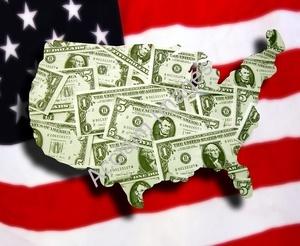This 4th of July, national nonprofit ACCC offers five critical steps to becoming financially free.
Boston, MA – July 1, 2015

Even with an improving economy, many Americans still struggle to make credit card payments. The average US household credit card debt stands at $15,706, counting only those households carrying debt, according to a June 2015 report from NerdWallet.com.
“Excessive debt can harm relationships, ruin retirement plans, and limit the chances of taking out a car or home loan,” said Steve Trumble, President and CEO of American Consumer Credit Counseling. “No one scripts financial disarray as a part of their life plan. Fortunately, there is a way out from under the oppressive weight of debt. Make this the year you tighten up your own personal spending and sharpen your long-term money plans.”
If you are struggling with how to erase debt and become financially free, here are some necessary steps to help you declare your financial independence:
- Don’t live beyond your means.
You can’t always control the amount of money you make, but you can control the money you spend. One way to avoid overspending is to carry cash instead of a debit or credit card. It’s harder to overspend when you carry cash. Unlike credit or debit cards, which can go over the limit or into a negative balance, you can’t slide past zero when you carry cash. If you decide to carry a card, limit spending to only what you can afford to pay off at the end of the month.
- Pay more towards your monthly minimum.
If you are struggling to pay off a credit card with a high interest rate, make sure to pay more towards your monthly minimum. One way to quickly plan out your payments is to use an online debt payoff calculator to give yourself an idea of the date in which you will be finished paying it off. - Invest in the future.
One of the best ways to plan a financially free future is to save toward your own retirement through an employer-sponsored 401(k) plan. If you don’t participate, you’re missing a golden opportunity to save for retirement while lowering your tax burden on those savings. - Keep an emergency fund.
Always prepare for an emergency. Set aside a portion of each paycheck and save a minimum of 9-12 months of expenses in a separate interest-earning account. The funds will help cover expenses in the event of a job loss, car accident, house repairs or other unforeseen events. - Insure yourself.
Even if your job does not supply it, make sure your medical, disability, home and automobile insurance policies are in order. Disaster could take any form – a car breaks down, a major home fire, or an automobile accident that leads to pricey legal action. Insurance gives you peace of mind. With it, you know that if anything happens to you, your family or your business that you will be financially secure.
ACCC is a 501(c)3 organization that provides free credit counseling, bankruptcy counseling, and housing counseling to consumers nationwide in need of financial literacy education and money management. For more information, contact ACCC:
- For credit counseling, call 800-769-3571
- For bankruptcy counseling, call 866-826-6924
- For housing counseling, call 866-826-7180
- Or visit us online at ConsumerCredit.com
About American Consumer Credit Counseling
American Consumer Credit Counseling (ACCC) is a nonprofit credit counseling 501(c)(3) organization dedicated to empowering consumers to achieve financial management and debt relief through education, credit counseling, and debt management solutions. Each month, ACCC invites consumers to participate in a poll focused on personal finance issues. The results are conveyed in the form of infographics that act as tools to educate the community on everyday personal finance issues and problems. By learning more about financial management topics such as credit and debt management, consumers are empowered to make the best possible financial decisions to reach debt relief. As one of the nation’s leading providers of personal finance education and credit counseling services, ACCC’s certified credit advisors work with consumers to help determine the best possible debt solutions for them. ACCC holds an A+ rating with the Better Business Bureau and is a member of the Association of Independent Consumer Credit Counseling Agencies. To participate in this month’s poll, visit ConsumerCredit.com and for more financial management resources visit TalkingCentsBlog.com.

